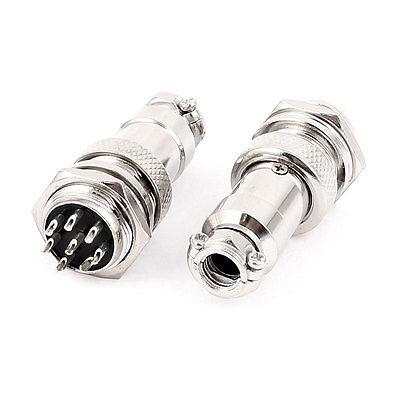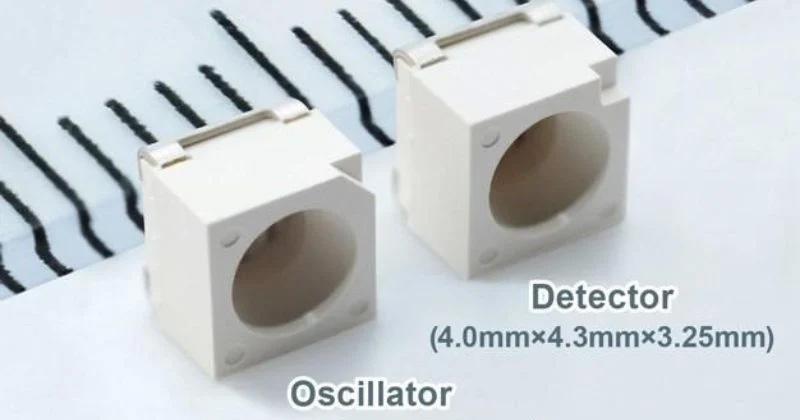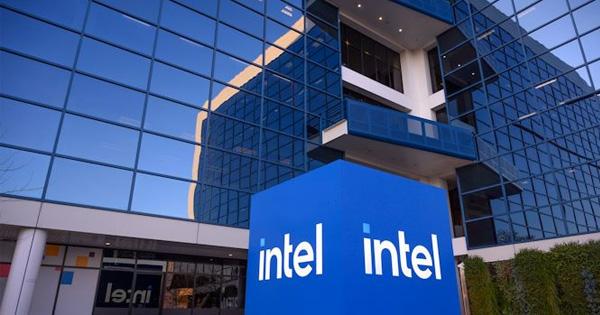
Microchip Fortifies 64-bit MPUs for ‘Post-Quantum Security’
Microchip Technology has announced its new PIC64HX1000 series, a quantum-resistant 64-bit RISC-V processor designed to address the emerging challenges of artificial intelligence, real-time processing, and quantum-resistant security.

The PIC64HX1000 series. Image used courtesy of Microchip
The rapid evolution of computing architecture has entered a new phase as industries grapple with unprecedented security challenges and computational demands. Traditional processor designs, while powerful, struggle to meet the security requirements in mission-critical sectors like aerospace, defense, and automotive, where any computational vulnerability could have severe consequences. Meanwhile, the looming threat of quantum computing has pushed manufacturers to fundamentally rethink their security approaches, as current encryption methods may become obsolete in the coming decades.
To address these sensitive use cases, Microchip optimized the PIC64HX1000 series' architecture for AI/ML capabilities, real-time processing, and robust security features.
Microchip's New Security-Focused RISC-V Processor
The PIC64HX1000 integrates eight 64-bit SiFive X280 RISC-V CPU cores that can support vector extensions and operate up to 1 GH to deliver 26K DMIPS scalar performance. The decoupled vector pipeline also enables 512-bit vector operations, resulting in up to 1 TFLOP processing power for AI/ML workloads. The supporting memory architecture includes dual DDR4-3,200 interfaces with up to 32 GB per interface and ECC for fault-tolerant data integrity.
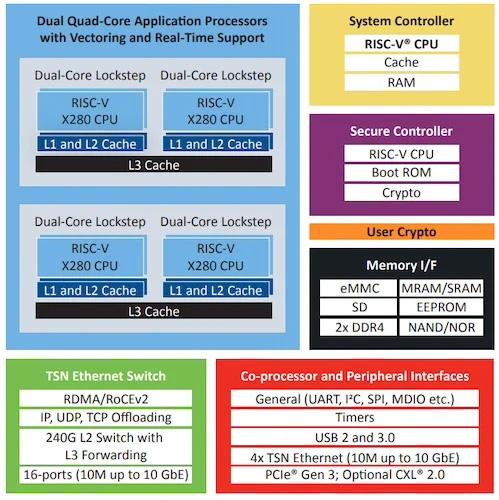
PIC64HX1000 family block diagram. Image used courtesy of Microchip
The PIC64HX1000 notably has a dedicated system controller with a 64-bit SiFive S7 core operating at 500 MHz. This controller manages mission-critical tasks such as runtime monitoring and fault management. Meanwhile, the integrated WorldGuard architecture provides spatial partitioning across cores, cache, memory, and interconnect, supporting up to 32 domains for workload isolation. Post-quantum cryptography, anti-tamper mechanisms, and a secure enclave for secure boot and platform integrity enhance defense-grade security.
The MPUs Leverage SiFive's X280 RISC-V CPU
Central to the PIC64HX1000 series is the SiFive Intelligence X280 processor, a 64-bit RISC-V vector processor optimized for AI and ML workloads. This processor features a scalable multi-core and multi-cluster design with up to eight cores. Architecturally, the design integrates an eight-stage dual-issue scalar pipeline with a decoupled vector ALU pipeline. Its RISC-V, 512-bit vector length (VLEN) vector supports dynamic variable vector length operations, while the 256-bit-wide vector ALU and load/store architecture enable efficient data processing. The system’s architecture also includes a shared memory subsystem with a scalable L3 coherent cache of up to 8 MB.
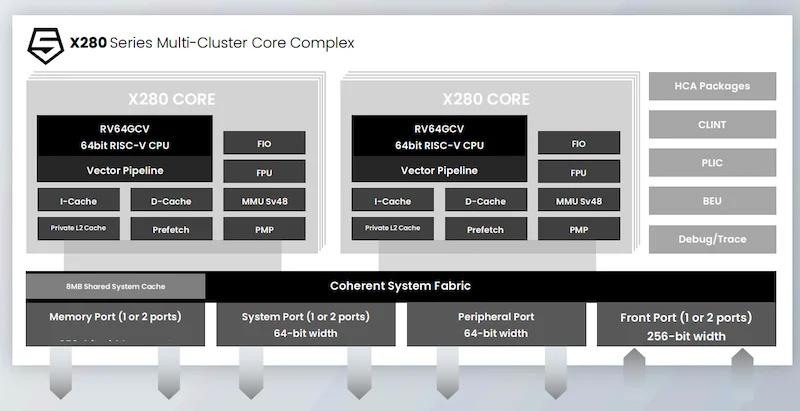
The X280 series multi-cluster core complex. Image used courtesy of SiFive
Microchip enhanced the X280's AI/ML performance using SiFive's Intelligence Extensions, which enable the processor to achieve up to 2.25 TFLOPs (bfloat16 MatMul) or 4.6 TOPS (INT8 MatMul). These custom extensions are tightly integrated with the RISC-V vector extension to accelerate machine learning inference. The vector pipeline supports data types like FP64, FP32, and INT8, making it versatile for various workloads. Additionally, the X280 supports vector length multipliers (LMUL) up to 8x, allowing vector operations with lengths up to 4096 bits.
For flexibility, the X280 offers multiple data ports, including 256-bit memory ports and 64-bit system ports. A decoupled scalar and vector pipeline offers parallel execution, and the design supports virtual memory with up to 48-bit addressing.
The Intersection of HPC and Security
The PIC64HX1000 series arrives at an intersection of market demands, where post-quantum security meets the need for high-performance computing in mission-critical applications. Integrating post-quantum cryptography into a high-performance RISC-V platform makes the PIC64HX1000 series a solid option for future-proof designs before quantum computers become a reality—and potentially a threat.

